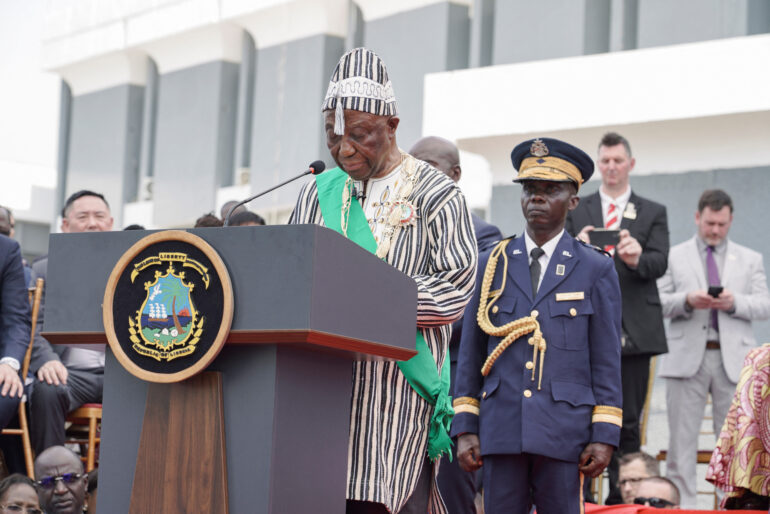The inauguration of Liberia’s new president Joseph Boakai, who succeeds former football star George Weah, was on Monday marked by the 79-year-old leader’s brief spell of exhaustion due to soaring temperatures, his party’s secretary general told AFP.
Boakai, whose age and health are the source of much discussion in the West African country, had to pause and sit down to finish his address in front of the parliament in Monrovia, where foreign delegations and local officials had gathered.
“Heat exhaustion contributed to the few minutes of disruption in his speech but the speech ended successfully and the president was advised by his doctors to come home as a result of that,” Amos Tweh, secretary general of Boakai’s party, told AFP.
“The president was not taken to the hospital. Everything went okay, the president is normal, and he’s doing well. The president has resumed his normal presidential duties,” he added.
Political veteran Boakai beat former Ballon d’Or winner Weah in November’s run-off poll, with 50.64 percent of the vote to 49.36 percent.
– ‘Come to the rescue’ –
During his inaugural address, Boakai stressed the need to rebuild poor infrastructure, improve basic services for everyone and ensure all Liberians are given the same chance of succeeding.
“We see hard times, we see dysfunctioning… we see corruption in high and low places. And (it’s) in these and similar conditions that we have come to the rescue,” Boakai declared, pledging to uphold the rule of law.
The investiture in parliament was attended by Ghanaian President Nana Akufo-Addo and US ambassador to the United Nations Linda Thomas-Greenfield.
Boakai, who will be steering Africa’s oldest republic for six years, has 40 years of political experience behind him.
He was vice-president from 2006 to 2018 under Africa’s first elected female head of state Ellen Johnson Sirleaf, before being soundly beaten by Weah in the 2017 election.
The November poll was peaceful in a region that has seen a succession of military coups in recent years in Mali, Burkina Faso, Guinea and Niger.
But the small nation of five million has been plagued with corruption, high levels of poverty and a weak justice system, after years of back-to-back civil wars and an Ebola outbreak.
Impunity related to crimes committed during those civil wars is another unresolved issue.
AFP


